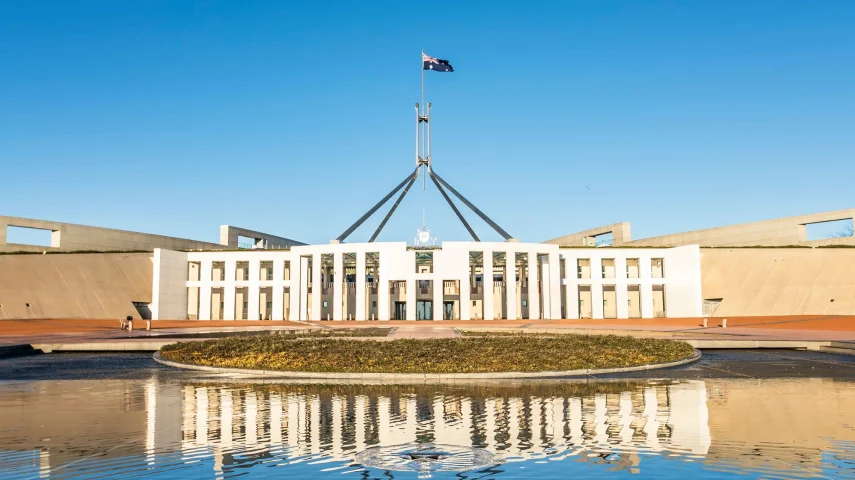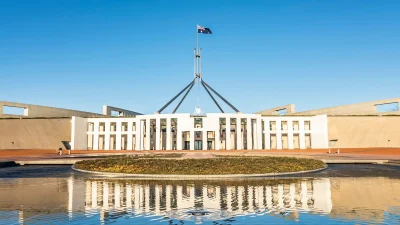Government flags $10m provision for ASIC greenwashing enforcement



The latest budget papers have flagged a desire to prioritise sustainable investing and greenwashing with a $17.3 million provision.
In the latest Labor budget, handed down on 14 May, the government said it will provide $17.3 million over four years from 2024–25 (and $3.1 million per year ongoing) to promote the development of sustainable finance markets in Australia.
The cost of this measure will be partially met from cost-recovery through ASIC and APRA industry levies, the government said.
As well as funding to allow ASIC to take action on greenwashing misconduct, it will also support the design of a labelling regime for sustainable retail investment products.
The full provision includes:
- $10 million over four years from 2024–25 (and $1.9 million per year ongoing) for additional resourcing for ASIC to investigate and take enforcement action against market participants engaging in greenwashing and other sustainability-related financial misconduct.
- $5.3 million over four years from 2024–25 (and $1.2 million per year ongoing) for the Treasury, ASIC and APRA to deliver the sustainable finance framework, including issuing green bonds, improving data and engaging in the development of international regulatory regimes related to sustainable finance.
- $1.6 million over two years from 2024–25 for ASIC and the Treasury to consult on the design of a labelling regime to regulate the use of sustainability labels on retail investment products.
- $0.5 million in 2024–25 to continue the development of Australia’s sustainable finance taxonomy, including expanding the taxonomy to cover the agricultural sector.
Commenting on the measure, Financial Services Council (FSC) chief executive Blake Briggs said: “Australia’s investment community is key to the transition to a low-carbon economy and the federal budget recognises the importance of developing an internationally aligned regulatory regime and a clear investment product labelling framework.”
Estelle Parker, co-chief executive of the Responsible Investment Association of Australasia (RIAA), said: "For too long, Australia was a late starter globally in recognising the opportunities provided by sustainability to all sectors, from primary industries, to manufacturing and workforce development. We must not miss out on the global capital flowing to invest in the transition to a low-carbon future – it won’t last forever."
She recommended the labelling regime takes examples from RIAA's own Responsible Investment Certification Program which the organisation has been running since 2005.
"A regime that is informed by RIAA's extensive experience in sustainable investment labelling can establish a leading practice for Australia," she said.
ASIC previously identified greenwashing as a priority for 2024 and it has already taken action against Active Super, Vanguard, Morningstar and Mercer, among others.
When running a sustainable or responsible fund, fund managers are expected to consider matters such as whether the product is true to label, whether they have used vague terminology, whether headline claims are potentially misleading, and whether they have explained the investment screening criteria.
Speaking at the Responsible Investment Association Australasia conference in Sydney earlier this month, ASIC chair Joe Longo said: “Combating greenwashing is critical to supporting trust. And ASIC’s role is to help shore up that trust, by finding the right balance between guidance, surveillance and enforcement.
“Yes, introducing a climate reporting regime can be expected to reduce greenwashing – through more standardised, consistent, and comparable climate-related information.
“But other initiatives proposed under the government’s draft sustainable finance strategy will also contribute – such as the development of an Australian sustainable finance taxonomy, and a labelling system for investment products marketed as ‘sustainable’. These are other important parts of the whole picture.”
At the end of March, the corporate regulator secured its first court victory in a greenwashing case when the Federal Court found Vanguard broke the law by making misleading claims about certain environmental, social and governance (ESG) exclusionary screens applied to investments in an index fund run by the firm.
According to the court’s judgment, Vanguard contravened the ASIC Act numerous times when it made false or misleading representations about the ESG exclusionary screens that were applied to the Vanguard Ethically Conscious Global Aggregate Bond Index Fund.
Recommended for you
Natixis Investment Managers has hired a distribution director to specifically focus on the firm’s work with research firms and consultants.
The use of total portfolio approaches by asset allocators is putting pressure on fund managers with outperformance being “no longer sufficient” when it comes to fund development.
With evergreen funds being used by financial advisers for their liquidity benefits, Harbourvest is forecasting they are set to grow by around 20 per cent a year to surpass US$1 trillion by 2029.
Total monthly ETF inflows declined by 28 per cent from highs in November with Vanguard’s $21bn Australian Shares ETF faring worst in outflows.











